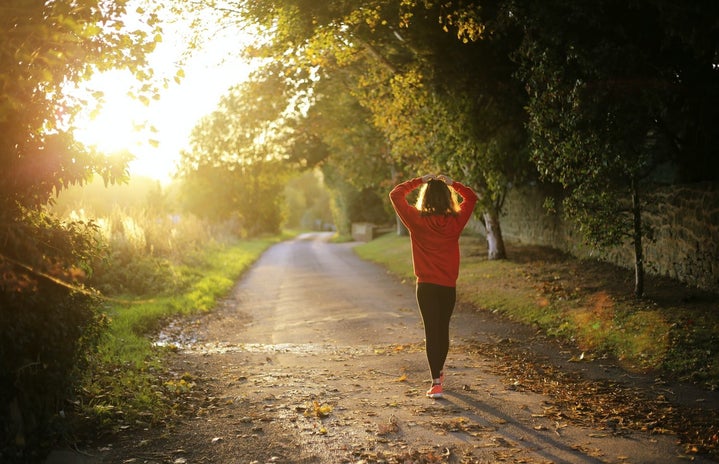After the unmotivating and disastrous year that was 2020, a lot of us are feeling inspired to better ourselves and the world around us. New Year’s resolutions are a great idea, but sometimes we discard them quickly because we set our hopes too high. It is usually easier to start with small changes that will help make the bigger changes more achievable. For myself, I thought “how could I be more environmentally friendly in my lifestyle choices?”
I have always been someone who loved and cared for the environment, but I wasn’t always aware of how everyday actions could have such a large impact. I started learning about simple alternatives I could try and I found ones I could incorporate into my everyday routine. While maintaining sustainability is not accessible 100% of the time, becoming more aware of eco-friendly alternatives can have a long and beneficial impact on the environment, as well as your own life. Starting with small changes can help you to consider more options.
So, if you are willing to try out some new lifestyle changes, here are some simple eco-friendly goals to keep in mind throughout 2021!
- Limit Single-Use Plastic
-
Single-use plastic has become so common in our everyday lives that we don’t even realize how much we can eliminate by making simple switches. Some of the plastic that we use once for a few minutes can take between a couple decades to a couple of hundred years to break down. When you start to think about how much single-use plastic is unnecessarily used, it’s frightening.
First, start with switching to a reusable water bottle! Investing in a water filter and reusable bottle will drastically reduce the amount of single-use plastic bottles you purchase and discard after only one use. From just this change, you’ll find that you are already removing so much unnecessary single-use plastic from your life. Reusable bottles, especially ones that are insulated, also help to keep your beverages cold or hot. To personalize your bottle, try painting or putting fun stickers on it! Switching to reusable water bottles is such an easy yet important step you can take.
Switching to reusable bags for grocery shopping is another great step to take to limit single-use plastic in their life. Plastic grocery bags are used maybe once or twice, and then quickly discarded in the trash. Many grocery stores have installed bins where you can return the plastic bags to be recycled; opting to use a reusable bag to transport groceries from the store to your house is the best option. Keeping the bags in your car or by your front door will help you remember to use them each time you go out. Like a reusable water bottle, you could also decorate a reusable bag to make it your own. Many craft stores sell tote bags and fabric markers, which could make a fun craft night for you and your friends!
I’m sure at this point everyone is aware of the impact straws can have on the environment, especially wildlife. The time it will take for a straw to decompose is drastically longer than the time it is even used for. A reusable straw is a simple but very important alternative to swap out plastic straws for this year. If you still prefer a new straw each time, try out a biodegradable straw! Biodegradable items will break down into natural elements shortly after being disposed of, so they are still a more eco-friendly option compared to plastic straws. Other small changes to eliminate single-use plastic include using reusable containers for leftover food storage instead of single-use bags or plastic wrap, using a bar of soap instead of a body wash in a plastic bottle or refillable jars for household items!Once you start with these simple switches, it will become easier to identify other single-use plastic items that you regularly use and find alternatives.
- Consider Alternatives to Animal Products
-
Being vegetarian, pescetarian or vegan is a major commitment and lifestyle change. While many restaurants, grocery stores and coffee shops are beginning to provide more alternatives for meat and dairy, it can still be a difficult switch. Instead of jumping right into a complete change in diet, try designating one or two days of the week for meatless meals or dairy-free options!
Meat and dairy products contain a lot of protein and other rich nutrients; however, so do beans, chickpeas, vegetables, nuts and so many more vegetarian and vegan foods. These foods can be used to replicate meat in certain dishes, but they can all be used to make their own yummy meals! Figure out which alternatives will best work for you and your diet to incorporate into your meals so that you can still get all your vital nutrients from these plant-based foods. The meat and dairy industries will continue to have extremely negative and harmful impacts on both the environment and animals being used as long as there is such a high demand for the product, so choosing to create meals that exclude these foods at least one day a week is a great eco-friendly goal.
There are now so many non-dairy substitutions that there’s something for everyone! Almond milk, coconut milk, soy milk, and oat milk (my personal favorite!) are just a few of the milk alternatives out there. Other dairy products such as cheese, yogurt and butter also have plant-based versions. Each has its own health benefits and effects on the environment, so it’s important to research and decide which alternative would be best for you. Next time you head to Dunkin for an iced coffee, try out one of their non-dairy substitutions and see if you like it!
- Be Mindful of What You Throw Away
-
Many single-use plastic items can be recycled, so if you find it’s unavoidable to use, make sure to recycle it afterward! It’s easy to toss something in the trash but make the effort to be more mindful of whether it can be recycled or not. Items typically will have a recyclable logo on the bottom along with a number, which will inform you of the type of plastic that item is made of and how it will be recycled. It’s best to find out what materials can be recycled in your area, and if they will need to be separated.
Realizing how much food gets wasted is another goal to keep in mind to be more eco-friendly. Make the most of what you already have! Planning your meals for the week around the food you have at home can help limit the number of items that end up going bad and needing to be tossed. For food scraps, consider compost! Vegetable and fruit peels, eggshells, coffee grounds and so many other food scraps are easily compostable – as well as items such as cardboard and newspaper. Small compost bins now make composting more accessible for people who may live in apartments or dorm rooms. Being more mindful of what you throw away this year is a great goal to set.
- Continue Educating Yourself!
-
Being 100% sustainable is not a realistic expectation, and the state of the environment does not fall onto one person’s actions. We’re all learning what we can do better in our everyday lives to help the environment. The best thing to do in 2021 is to continue educating yourself on environmental issues and how we can fix that. Whether it’s signing petitions, advocating for environmental reforms, or educating others on their choices, every bit helps. Take it one step at a time and find which changes will work best for you. Once we become aware of how our everyday choices affect the environment, eco-friendly alternatives will become more common and accessible for everybody!



